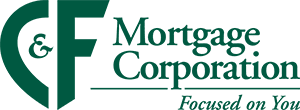Understanding how much home you can afford is one of the most important steps of the buying process. It’s the most logical starting point, and it allows you to set up realistic expectations from the beginning of your home buying journey. When you’re purchasing a new home, it’s about more than just the monthly mortgage payment – you’ll also need to think about things like a down payment, taxes, insurance, and of course, ongoing maintenance costs that all homes will require year after year.
Fortunately, by connecting with a lender at the beginning of the home search process, you’ll be able to understand all of the costs involved with homeownership and make an educated purchase decision when the right house comes along. Below, we’ll highlight some of the biggest things to consider about the costs of buying a house, plus how to determine affordability.
What Are the Costs of Homebuying?
Looking at the price of homes is only one step of the process. Many factors determine how much money will come out of your pocket upfront and every month once you obtain a mortgage. Here are a few costs you’ll need to consider:
- Down Payment – Most mortgage programs require at least 3% of the purchase price as a down payment, so keep in mind that the more expensive the home, the more cash you’ll need to have on hand! Fortunately, there are also many low-to-no down payment opportunities available to qualified buyers and your loan officer can help guide you through this step.
- Other Closing Costs – Generally, both buyers and sellers will be responsible for closing costs, but how those are divided can vary based on the current real estate market. Buyers should expect to pay 2-4% of the purchase price in closing costs and fees, which include things like a home inspection, lender fees, appraisals, and more.
- Taxes & Insurance – These are usually factored into the closing costs but are worth highlighting since the costs can vary. You’ll pay a prorated amount for your property taxes and homeowners’ insurance upfront, based upon your closing date. Once you’ve purchased the home, your taxes and insurance will be broken down on a monthly fee schedule and included in your mortgage payment.
- Mortgage Insurance – If you decide to put less than 20% down on a home, your lender may require you to pay mortgage insurance as part of your monthly payment depending on what loan program you choose. This is intended to protect the lender in the event you default on the loan. With a conventional loan, once your balance reaches 80% of the original value or sales price of your property (whichever is less), you have the right to request your lender to consider the cancellation of this insurance. Certain conditions are required to terminate the insurance. However, it’s worth noting, if you choose a Federal Housing Administration (FHA) Loan, the mortgage insurance will last for the life of the loan.
- HOA Dues – When you’re looking at houses, ALWAYS ask your agent if there is an HOA and what the monthly dues will be. HOA assessments are included in calculating home affordability, and are sometimes more expensive than a monthly car payment!
- Repairs & Maintenance – If you have your heart set on a home that needs some TLC, you’ll want to understand the full scope of work before committing to that home. Remodeling and repairs can add up quickly, and you’ll want to be sure you’re prepared to foot the bill once you purchase the home. Even a home in mint condition will require routine maintenance to keep it in tiptop shape, so it’s a good rule of thumb to set aside at least 1% of your home’s value each year to pay for repairs and improvements.
How Do I Know How Much I Can Afford?
Becoming pre-qualified for a mortgage is one of the best ways to determine a good budget for home buying. You’ll work with a lender, who will utilize your credit score and basic financials to provide an estimate of how much you can afford. You should note that this is a very basic glimpse into your financial history and doesn’t necessarily take into account all of your expenses and spending, so theoretically, you might be qualified on paper to afford a home more expensive than you feel comfortable buying. With that said, it’s a great starting point and makes it easier to sort through home listings to determine which ones fall within your budget.
A good rule of thumb is to not spend more than 28% of your monthly income on your home. Your lender will calculate your debt-to-income ratio (how much you spend vs. how much you earn) as part of the mortgage process, and this ratio will impact how much money you can borrow when purchasing a home. You can also use an affordability calculator to quickly assess how much home you can afford.
When you’re ready to begin your home buying journey, C&F Mortgage will be there for you every step of the way. Get in touch with our team of local industry experts today to learn more about home affordability and determine a budget that works for you and your family!

